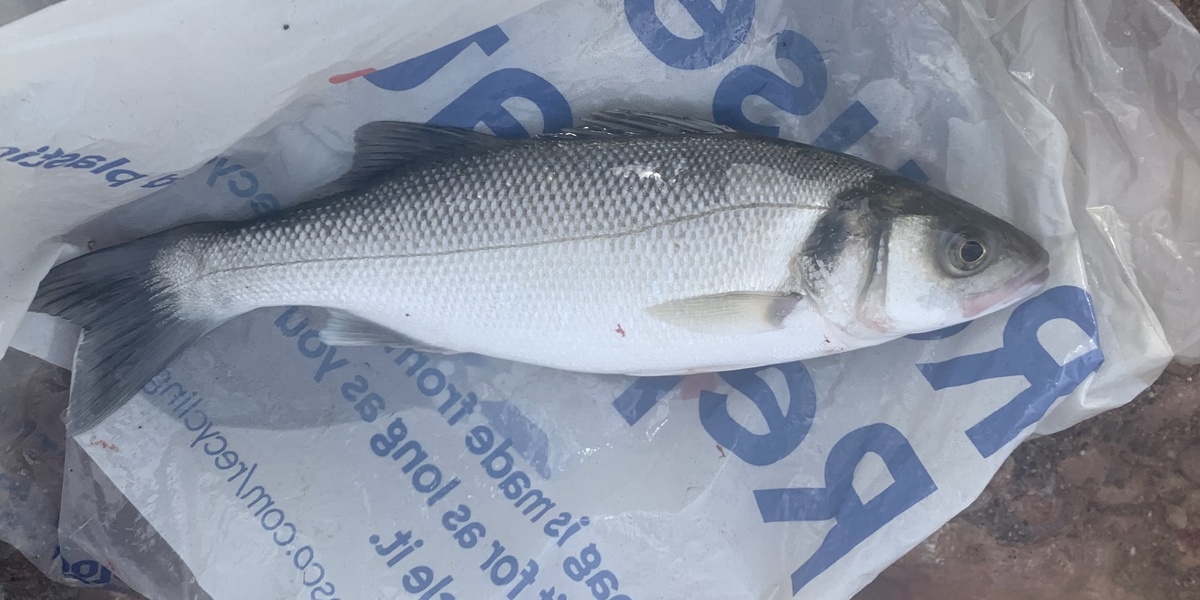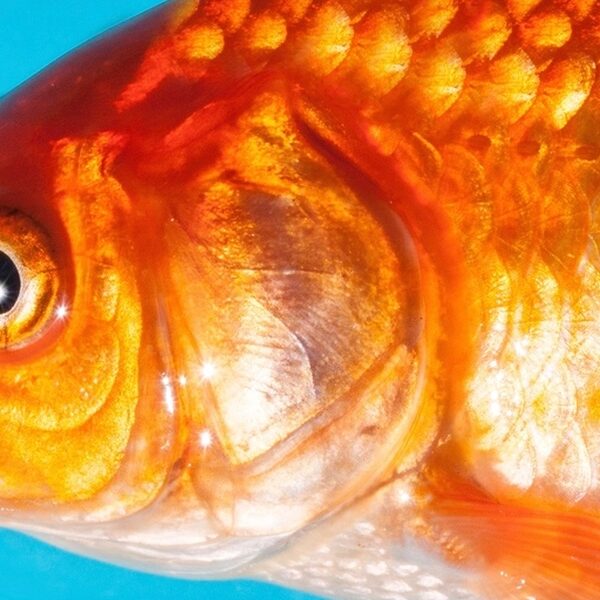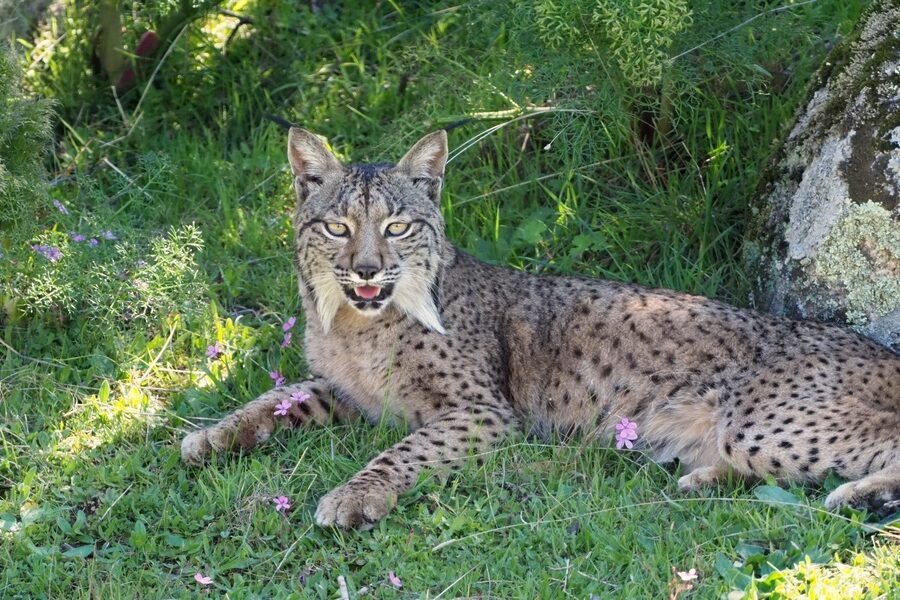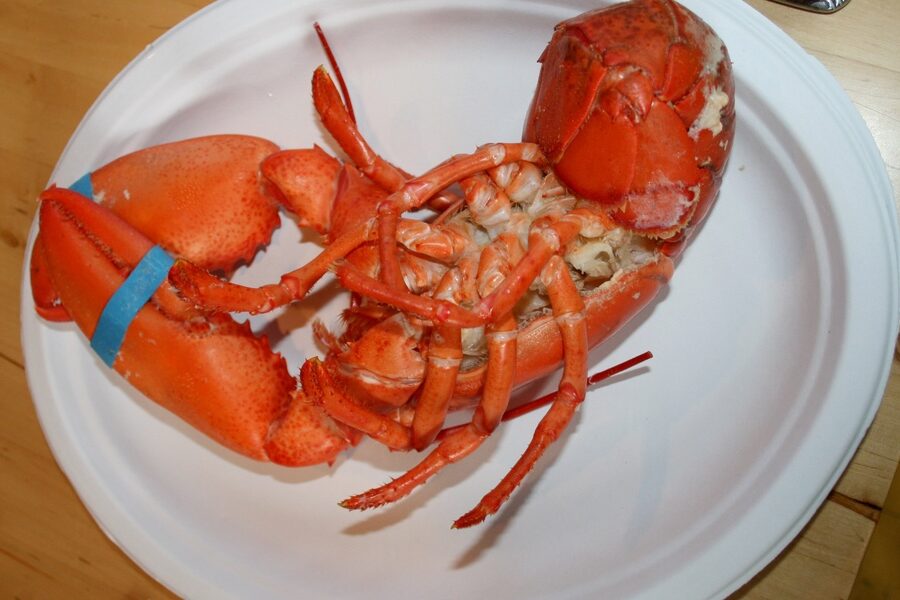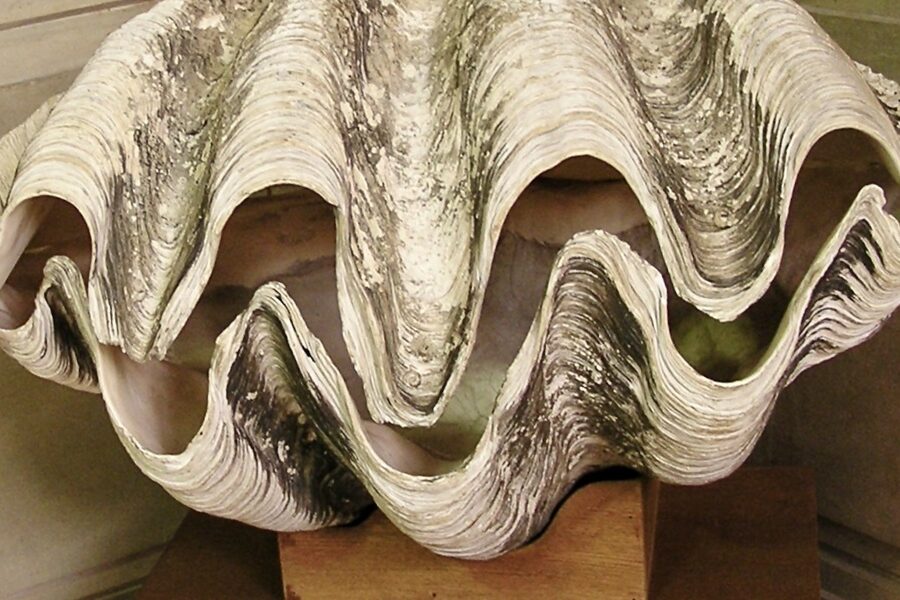Spain’s coasts span the Atlantic and the Mediterranean, hosting a wide mix of temperate and subtropical species shaped by currents, reefs, estuaries and seagrass beds. Whether you’re a diver, angler or curious reader, a compact checklist makes it easier to understand which fish live where and how big they grow.
There are 59 Fish of Spain, ranging from Angelshark to Zander. For each entry you’ll find below the columns Scientific name,Max size (cm),Habitat / region so you can scan identification, size and distribution at a glance; the list below groups that information clearly for quick reference.
How can I use this list to identify fish I encounter while diving or fishing in Spain?
Use the Scientific name to confirm species when common names vary, compare the Max size (cm) to assess maturity or likely catch size, and check Habitat / region to see if a sighting is plausible where you are. Pair the table with photos or a field guide for faster, more confident ID.
Are any species on the list protected or subject to fishing limits in Spanish waters?
Yes — several species are protected or regulated (for example, some shark and ray species), and size/season rules apply for commercial and recreational fisheries. Check Spain’s regional fisheries regulations and conservation listings before targeting or handling species.
Fish of Spain
| Common name | Scientific name | Max size (cm) | Habitat / region |
|---|---|---|---|
| European Sea Bass | Dicentrarchus labrax | 100 | Coastal waters, estuaries; Atlantic and Mediterranean |
| Gilt-head Bream | Sparus aurata | 70 | Shallow coastal waters; all Spanish coasts |
| European Hake | Merluccius merluccius | 140 | Deep offshore waters; Atlantic and Mediterranean |
| Atlantic Bluefin Tuna | Thunnus thynnus | 458 | Open ocean; Atlantic, Strait of Gibraltar, Mediterranean |
| Common Pandora | Pagellus erythrinus | 60 | Sandy and muddy bottoms; Mediterranean and Atlantic |
| Sardine | Sardina pilchardus | 27 | Coastal pelagic; Atlantic and Mediterranean |
| European Anchovy | Engraulis encrasicolus | 20 | Coastal pelagic; Atlantic (Bay of Biscay) and Mediterranean |
| John Dory | Zeus faber | 66 | Demersal on various bottoms; Atlantic and Mediterranean |
| Common Sole | Solea solea | 70 | Sandy and muddy seabeds; Atlantic and Mediterranean |
| Turbot | Scophthalmus maximus | 100 | Sandy and muddy seabeds; Atlantic and Mediterranean |
| Monkfish | Lophius piscatorius | 200 | Deep-sea floor; Atlantic and Mediterranean |
| Grouper | Epinephelus marginatus | 150 | Rocky reefs, caves; Mediterranean and Canary Islands |
| Greater Amberjack | Seriola dumerili | 190 | Reefs and open water; Mediterranean and Canary Islands |
| Leerfish | Lichia amia | 200 | Coastal waters, estuaries; Mediterranean and Gulf of Cádiz |
| Bluefish | Pomatomus saltatrix | 130 | Coastal waters; Atlantic and Mediterranean |
| Atlantic Mackerel | Scomber scombrus | 60 | Pelagic; Atlantic and Mediterranean |
| Red Scorpionfish | Scorpaena scrofa | 50 | Rocky and sandy bottoms; Mediterranean and Atlantic |
| Mediterranean Moray | Muraena helena | 150 | Rocky reefs, crevices; Mediterranean and Canaries |
| Conger Eel | Conger conger | 300 | Rocky bottoms, wrecks; Atlantic and Mediterranean |
| Ornate Wrasse | Thalassoma pavo | 25 | Rocky shores; Mediterranean and Canary Islands |
| Damselfish | Chromis chromis | 15 | Rocky reefs; Mediterranean and Canary Islands |
| Parrotfish | Sparisoma cretense | 50 | Rocky reefs; Canary Islands and southern coasts |
| Salema Porgy | Sarpa salpa | 51 | Seagrass beds, rocky areas; all Spanish coasts |
| Barracuda | Sphyraena viridensis | 165 | Open water, reefs; Mediterranean and Canary Islands |
| Iberian Barbel | Luciobarbus bocagei | 100 | Rivers and reservoirs; Douro and Tagus basins |
| Iberian Nase | Pseudochondrostoma polylepis | 50 | Flowing rivers with gravel beds; central and western Spain |
| Common Carp | Cyprinus carpio | 110 | Slow-moving rivers, reservoirs; throughout Spain |
| Largemouth Bass | Micropterus salmoides | 75 | Reservoirs, lakes; throughout Spain |
| Pike | Esox lucius | 150 | Reservoirs and slow rivers; throughout Spain |
| Wels Catfish | Silurus glanis | 500 | Large rivers and reservoirs; Ebro and Tagus basins |
| Rainbow Trout | Oncorhynchus mykiss | 80 | Cold rivers and mountain lakes; Pyrenees and other ranges |
| Brown Trout | Salmo trutta | 100 | Mountain rivers and streams; northern and central Spain |
| Iberian Chub | Squalius pyrenaicus | 25 | Rivers and streams; most of the Iberian peninsula |
| Zander | Sander lucioperca | 100 | Large reservoirs and rivers; throughout Spain |
| Three-spined Stickleback | Gasterosteus aculeatus | 11 | Freshwater and brackish streams; throughout Spain |
| Samaruc | Valencia hispanica | 8 | Coastal marshes and lagoons; Valencia region |
| Fartet | Aphanius iberus | 5 | Brackish coastal wetlands; Mediterranean coast |
| Swordfish | Xiphias gladius | 455 | Open ocean; Atlantic, Mediterranean, Canaries |
| White Marlin | Kajikia albida | 280 | Tropical and subtropical open ocean; Canary Islands |
| Dolphin Fish | Coryphaena hippurus | 210 | Open ocean; Mediterranean and Canary Islands |
| Red Porgy | Pagrus pagrus | 91 | Rocky and sandy bottoms; Atlantic and Mediterranean |
| Dentex | Dentex dentex | 100 | Rocky reefs; Mediterranean and Canary Islands |
| Forkbeard | Phycis phycis | 65 | Rocky bottoms, caves; Mediterranean and Atlantic |
| Comber | Serranus cabrilla | 40 | Rocky and seagrass beds; Mediterranean and Atlantic |
| Painted Comber | Serranus scriba | 36 | Rocky bottoms and seagrass; Mediterranean and Atlantic |
| Axillary Seabream | Pagellus acarne | 36 | Sandy and muddy bottoms; Mediterranean and Atlantic |
| Black Seabream | Spondyliosoma cantharus | 60 | Rocky reefs and wrecks; Atlantic and Mediterranean |
| Saddled Seabream | Oblada melanura | 34 | Coastal rocky areas; Mediterranean and Atlantic |
| Two-banded Seabream | Diplodus vulgaris | 45 | Rocky shores and seagrass; Mediterranean and Atlantic |
| White Seabream | Diplodus sargus | 45 | Rocky shores, surf zones; Atlantic and Mediterranean |
| Meagre | Argyrosomus regius | 230 | Coastal waters, estuaries; Atlantic and Mediterranean |
| European Flounder | Platichthys flesus | 60 | Estuaries, coastal waters; Atlantic coasts |
| Thicklip Grey Mullet | Chelon labrosus | 75 | Harbours, estuaries, coastal waters; all Spanish coasts |
| Flying Fish | Cheilopogon exsiliens | 30 | Surface of the open ocean; Canary Islands and warm seas |
| Sunfish | Mola mola | 330 | Open ocean; Atlantic, Mediterranean, Canaries |
| Small-spotted Catshark | Scyliorhinus canicula | 100 | Seabed; Atlantic and Mediterranean |
| Angelshark | Squatina squatina | 244 | Sandy seabeds; Canary Islands |
| Spiny Dogfish | Squalus acanthias | 160 | Deep water; Atlantic and Mediterranean |
| Blue Shark | Prionace glauca | 383 | Open ocean; Atlantic and western Mediterranean |
Images and Descriptions

European Sea Bass
A prized sport and table fish known as ‘lubina’. This sleek silver predator is famous for its fighting spirit and delicious white flesh, making it a favourite among anglers and chefs along all of Spain’s coasts.
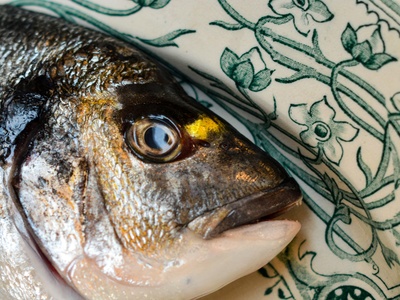
Gilt-head Bream
Instantly recognizable by the golden bar between its eyes, this is Spain’s beloved ‘dorada’. It is highly valued for its firm, succulent meat and is a staple in coastal cuisine, both wild-caught and farmed.
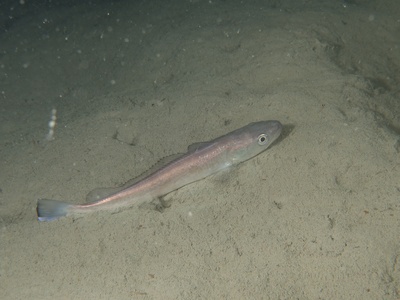
European Hake
The famous ‘merluza’, a cornerstone of Spanish seafood. Its mild, flaky white flesh is incredibly versatile, used in everything from simple fried dishes to classic ‘merluza en salsa verde’. It’s a deep-water predator.
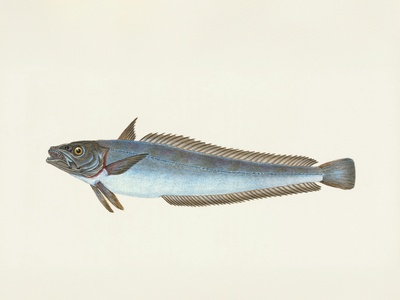
Atlantic Bluefin Tuna
A majestic and powerful giant, the king of tuna. Famed for its migrations through the Strait of Gibraltar, it is a legendary sport fish and the source of high-end ‘atún rojo’ used in sashimi and gourmet dishes.
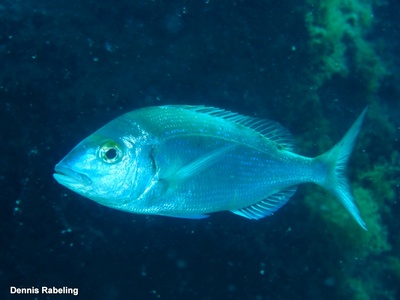
Common Pandora
A popular reddish-pink sea bream often seen in fish markets. Known as ‘breca’, it has a delicate flavour and is typically baked whole with potatoes and herbs, a classic Mediterranean preparation.
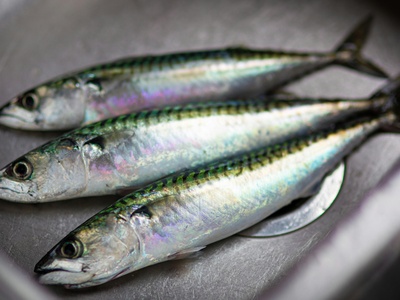
Sardine
An iconic small, oily fish, central to Spanish summer festivals, especially when grilled (‘espetos’). Sardines are not only delicious but also packed with omega-3 fatty acids, forming huge schools offshore.

European Anchovy
The source of Spain’s world-famous anchovies (‘anchoas’ and ‘boquerones’). This small, silvery fish is netted in huge numbers, especially in the Cantabrian Sea, and is a key part of tapas culture.
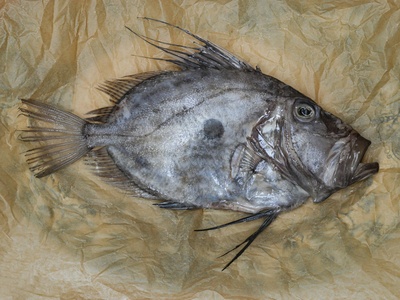
John Dory
An unusual-looking fish with a distinctive dark spot on its flank, said to be St. Peter’s thumbprint. It is a solitary predator with a very flattened body and highly prized for its firm, sweet white flesh.
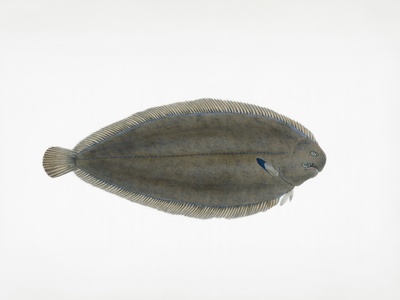
Common Sole
The ‘lenguado’ is a master of camouflage, a flatfish highly sought after for its fine, delicate texture and mild flavour. It is a gourmet classic, often served simply grilled or with a Meunière sauce.
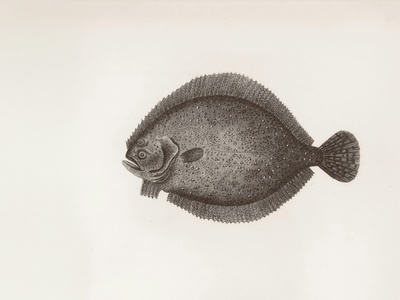
Turbot
A large, circular flatfish prized in high-end Spanish cuisine, especially from Galicia. Its firm, white flesh holds up well to roasting. Its eyes are both on the left side of its mottled, scaleless body.
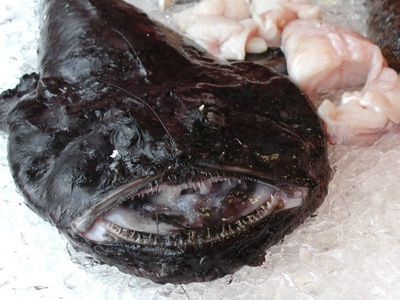
Monkfish
Known as ‘rape’, this strange-looking anglerfish is famous for its huge head and mouth. Only its tail is eaten, offering dense, meaty flesh often compared to lobster. It’s a culinary delight with zero waste.
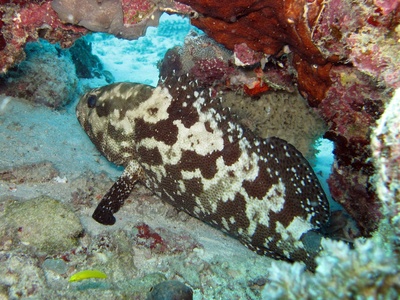
Grouper
A large, powerful predator and a thrilling sight for divers. Known as ‘mero’, this fish can change sex from female to male. It is a prized catch for spearfishermen and famous for its succulent meat in stews.
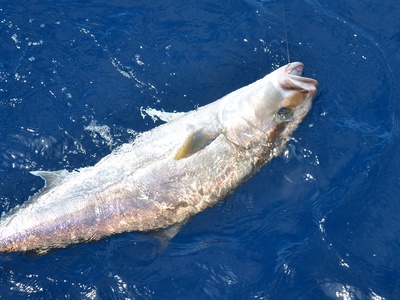
Greater Amberjack
A powerful, fast-swimming predator prized by sport fishermen for its strength and stamina. Known as ‘pez de limón’ or ‘serviola’, its firm, flavourful meat is excellent for grilling or preparing as sashimi.
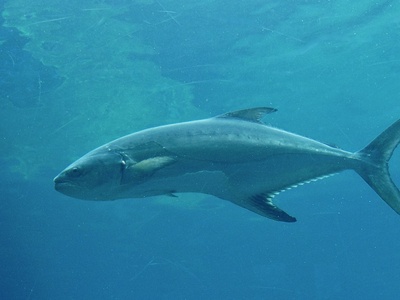
Leerfish
A large, aggressive coastal predator that provides a spectacular challenge for anglers. Known as ‘palometón’, its streamlined silver body is built for speed, often hunting mullet and other fish in shallow waters.
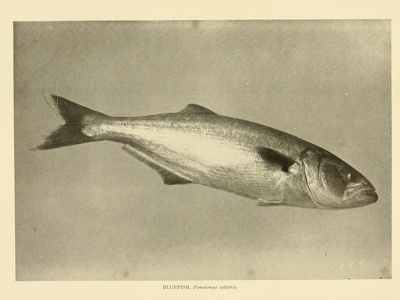
Bluefish
A voracious predator with razor-sharp teeth, known for its aggressive feeding frenzies. In Spain, it’s called ‘anjova’ or ‘tallahams’ and is a thrilling, hard-fighting catch for shore and boat anglers.
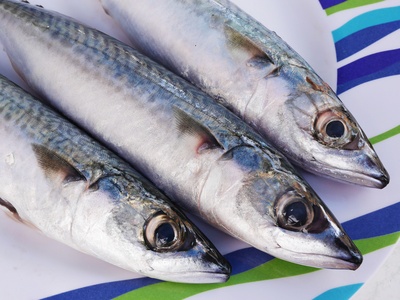
Atlantic Mackerel
A beautifully streamlined fish with a distinctive wavy pattern. Known as ‘caballa’, it is an affordable and healthy oily fish, commonly grilled, smoked, or pickled. It migrates in large schools along the coast.
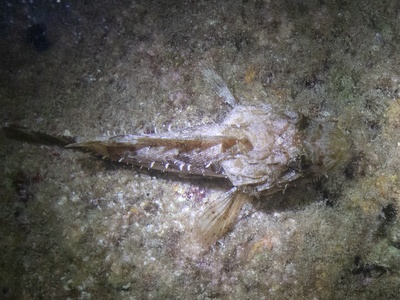
Red Scorpionfish
A master of disguise with venomous spines, known as ‘cabracho’. Divers admire its camouflage, while chefs value its intensely flavourful flesh, which is the key ingredient in the classic Asturian ‘pastel de cabracho’.
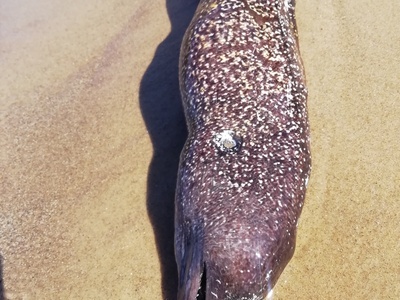
Mediterranean Moray
A serpentine predator often seen by divers peering out from its rocky lair. With a powerful bite and patterned skin, the moray eel is a respected and fascinating nocturnal hunter of the Mediterranean reefs.
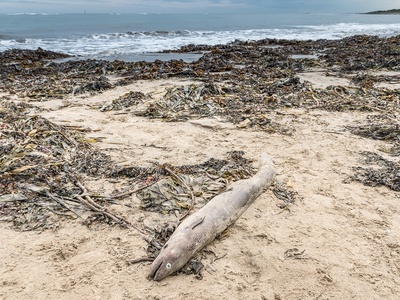
Conger Eel
A huge, powerful eel found in coastal waters. The ‘congrio’ is a formidable predator and a traditional food source, especially in Galicia, where it’s used in hearty soups and empanadas.
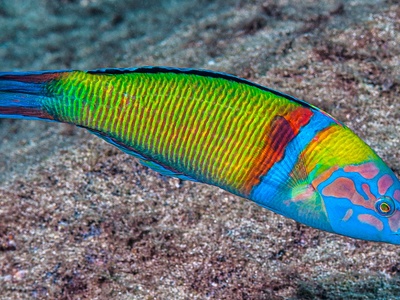
Ornate Wrasse
A stunningly colourful fish, especially the males with their vibrant blue, green, and red patterns. It is a common sight for snorkelers and divers in the warm, shallow waters around rocky coastlines.
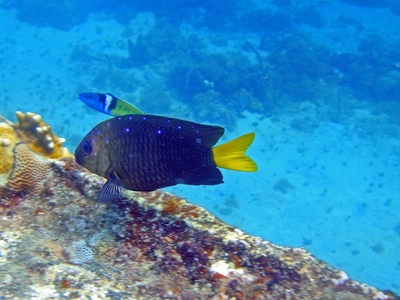
Damselfish
Small, dark fish that form shimmering clouds above reefs. They are one of the most abundant fish in the Mediterranean, and their darting schools create a lively spectacle for divers and snorkelers.
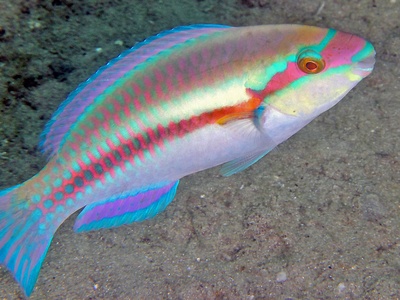
Parrotfish
A colourful icon of the Canary Islands, known as ‘vieja’. It uses its beak-like teeth to graze on algae. Its tender white meat is a local delicacy, often boiled and served with ‘papas arrugadas’.

Salema Porgy
Identifiable by its golden-yellow stripes, the ‘salpa’ is a common herbivorous fish. While not highly rated for eating due to its strong taste, it plays a key role in controlling algae in coastal ecosystems.
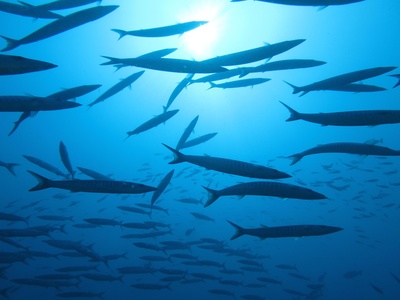
Barracuda
A sleek, torpedo-shaped predator with a formidable set of teeth. Often seen by divers hovering in intimidating schools, the ‘barracuda’ is a top predator of warmer Spanish waters, especially around the Canary Islands.
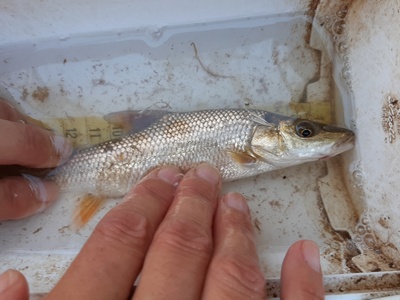
Iberian Barbel
A powerful, large-bodied fish native to the Iberian peninsula. Famous for its whisker-like barbels, it is a prized catch for freshwater anglers who respect its strength and fighting ability in Spain’s major rivers.
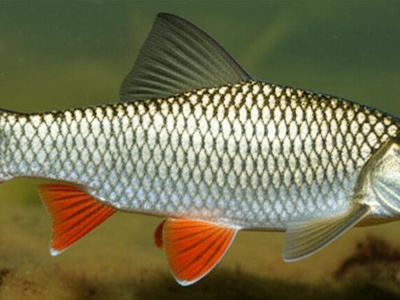
Iberian Nase
A native Iberian cyprinid with a distinctive arched snout and underslung mouth for scraping algae. The ‘boga de río’ is an important part of Spain’s river ecosystems and a popular target for coarse fishermen.
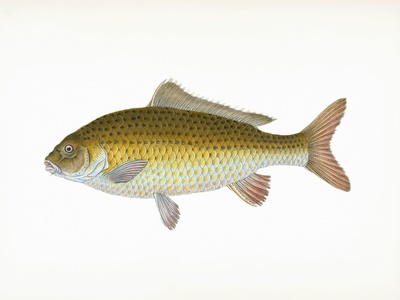
Common Carp
This adaptable and widespread fish is a giant of Spanish inland waters. Originally introduced, carp (‘carpa’) thrive in reservoirs and are a favourite target for anglers who specialize in catching these powerful, large specimens.
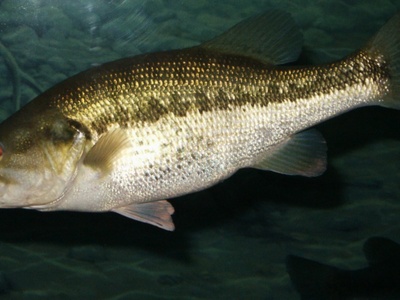
Largemouth Bass
Introduced from North America, the ‘black bass’ has become the premier freshwater sport fish in Spain. It is prized by anglers for its aggressive strikes and acrobatic fights in reservoirs like Cijara or Mequinenza.
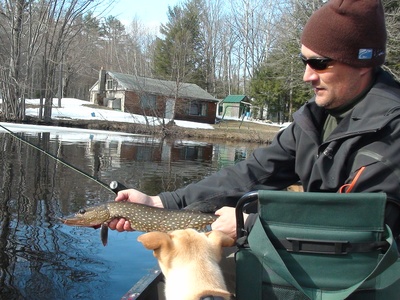
Pike
A formidable freshwater predator with a duck-bill snout and needle-sharp teeth. The ‘lucio’ was introduced for angling and has thrived, offering a thrilling challenge to fishermen seeking a large, aggressive trophy fish.
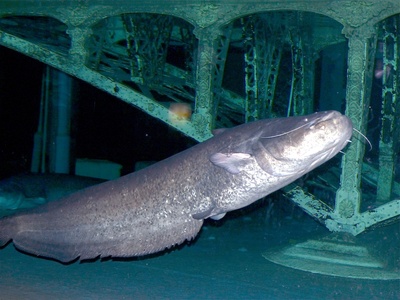
Wels Catfish
Europe’s largest freshwater fish, this introduced giant lurks in the deep pools of rivers like the Ebro. The ‘siluro’ is a legendary catch, attracting anglers from all over the world hoping to battle this massive predator.
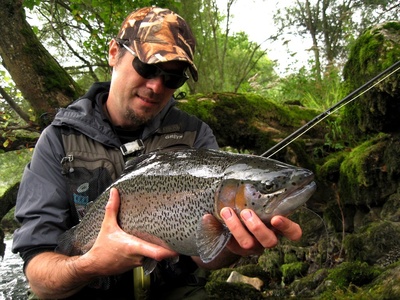
Rainbow Trout
A beautiful, colourful trout introduced for sport fishing. The ‘trucha arcoíris’ thrives in Spain’s cool, clear mountain streams and is a favourite for fly fishermen due to its willingness to take a fly and its lively fight.
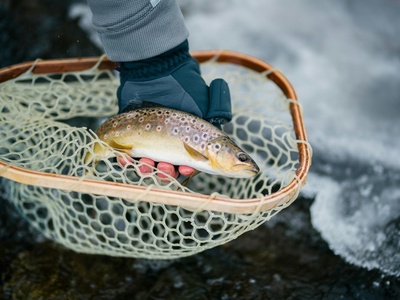
Brown Trout
Spain’s native trout species, the ‘trucha común’ is a prized catch for its beautiful spotting and wild spirit. It inhabits the cold, well-oxygenated headwaters of rivers, a true jewel of the Iberian mountains.
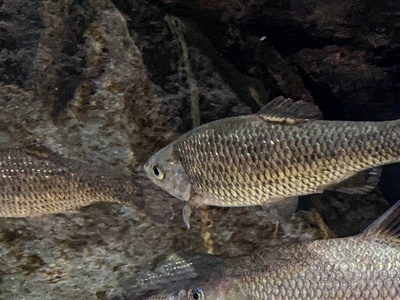
Iberian Chub
A widespread and adaptable native cyprinid, known locally as ‘cacho’ or ‘bordallo’. While not large, it is a lively and common inhabitant of many Spanish rivers, important ecologically and for recreational fishing.
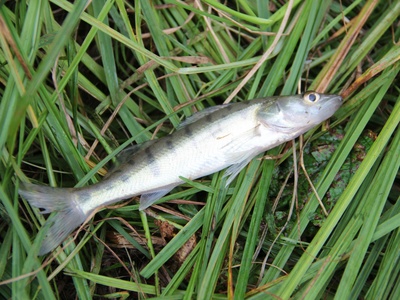
Zander
A predatory fish with glassy eyes and sharp teeth, often called the ‘lucioperca’. Introduced for angling, it has established large populations in many reservoirs, valued for both its sporting qualities and its excellent, lean white meat.
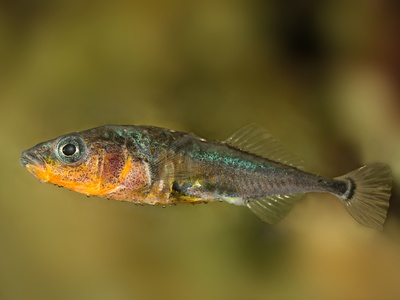
Three-spined Stickleback
A small, fascinating fish famous for the male’s elaborate nest-building and courtship rituals. The ‘espinoso’ is a common sight in small streams and ditches, notable for its three sharp dorsal spines.
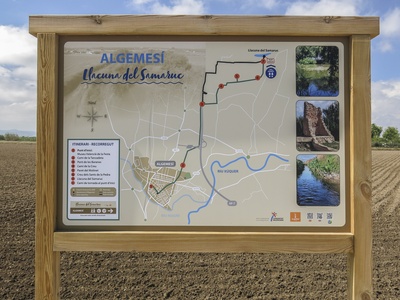
Samaruc
A critically endangered small fish endemic to the Spanish Mediterranean coast. The ‘samaruc’ is a symbol of conservation efforts in Spain’s wetlands, surviving in a few protected freshwater springs and marshes.
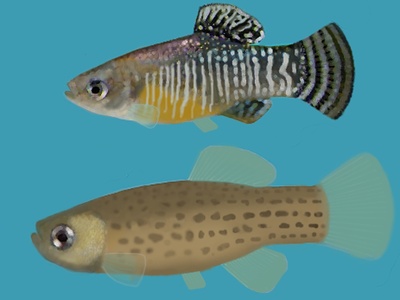
Fartet
Another endangered Iberian endemic, this small killifish is adapted to hypersaline coastal lagoons. The ‘fartet’ is a small but hardy survivor, representing the unique biodiversity of Spain’s threatened coastal habitats.
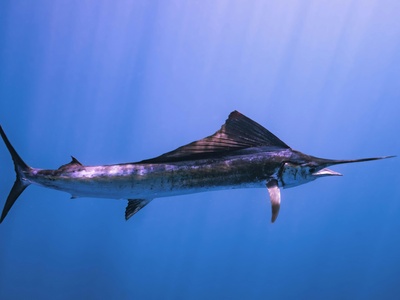
Swordfish
Recognized by its long, flat bill, the ‘pez espada’ is a powerful and highly migratory predator. It is a prized big-game fish and a popular food, with its meaty steaks being a common feature on restaurant menus.
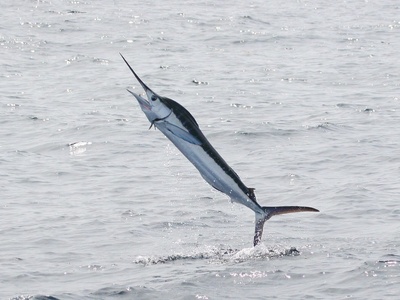
White Marlin
A spectacular billfish sought after by big-game anglers, especially in the Canary Islands. It is known for its incredible speed and acrobatic leaps when hooked, making it a true trophy catch of the Atlantic.
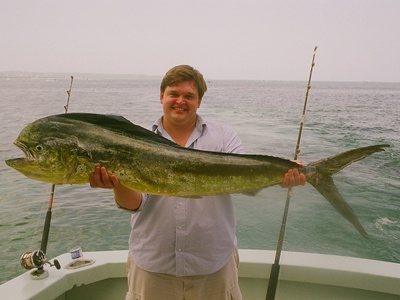
Dolphin Fish
Also known as Mahi-mahi or ‘llampuga’, this stunningly colourful fish flashes vibrant blues, greens, and yellows. It is a fast-growing, hard-fighting sport fish found in warm offshore waters, and it is excellent to eat.

Red Porgy
A robust, pinkish-hued sea bream known as ‘pargo’. It is a delicious and highly regarded food fish, often baked whole. It possesses strong jaws for crushing shellfish and is a strong fighter when hooked by anglers.
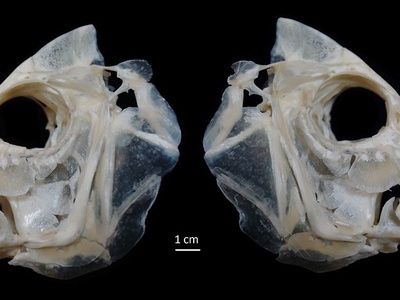
Dentex
A powerful predator with prominent canine-like teeth, giving it its name ‘dentón’. It is a solitary hunter, a prized target for spearfishermen and anglers, and highly esteemed for its firm, delicious flesh.
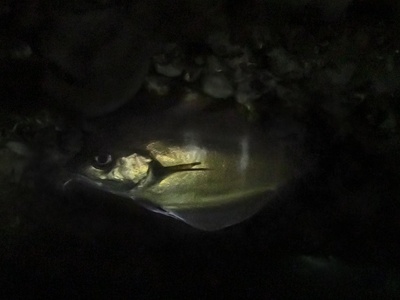
Forkbeard
A nocturnal, cod-like fish often found hiding in crevices during the day. Known as ‘brótola’, it is characterized by the single barbel on its chin. It’s a common catch in artisanal fisheries and has soft, tasty meat.
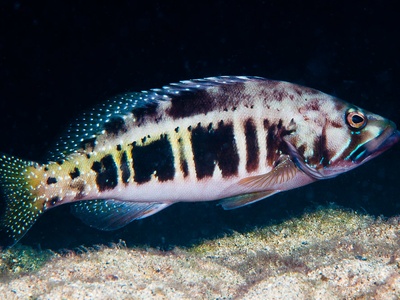
Comber
A small but feisty member of the grouper family, easily identified by its vertical reddish-brown bars. The ‘cabrilla’ is a common catch for coastal anglers and adds a splash of colour to the nearshore ecosystem.
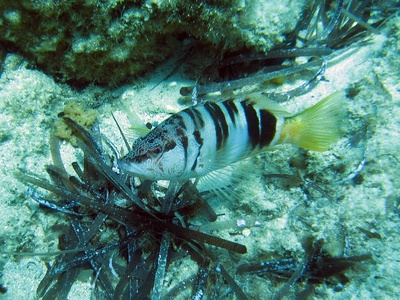
Painted Comber
Similar to the comber but distinguished by a bright blue patch on its belly and script-like markings on its head. This inquisitive little predator, ‘serrano’, is another colourful character of the Mediterranean shallows.
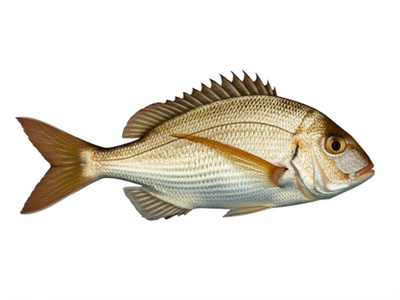
Axillary Seabream
A smaller member of the bream family, recognized by a dark spot at the base of its pectoral fin. Known as ‘aligote’ or ‘besugo blanco’, it’s a common and affordable food fish, often fried.
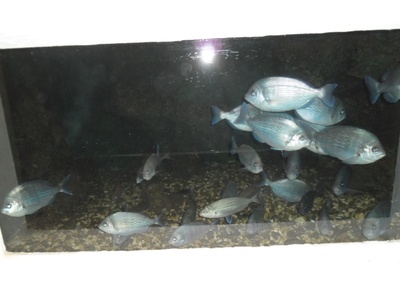
Black Seabream
Known as ‘chopa’, the male turns a striking dark blue-grey during the breeding season. It is a popular catch for recreational anglers from shore or boat and is well-regarded for its flavour.
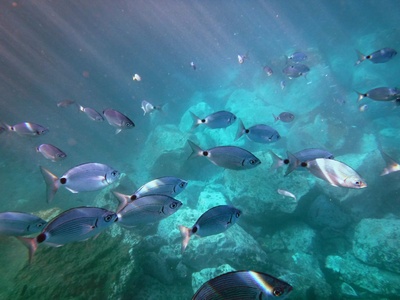
Saddled Seabream
A lively, silvery fish easily identified by the large black spot on its tail peduncle, encircled by a white ring. The ‘oblada’ forms large schools and is a common catch for anglers using light tackle.
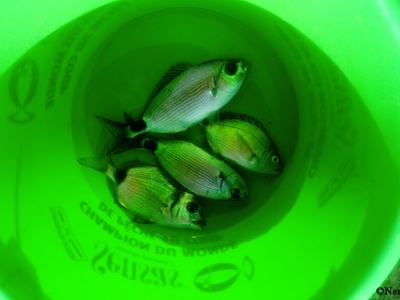
Two-banded Seabream
The ‘mojarra’ is recognized by two distinct vertical black bands, one behind the head and one at the tail. It is a very common inshore fish, a staple for rock-fishers and often seen by snorkelers.
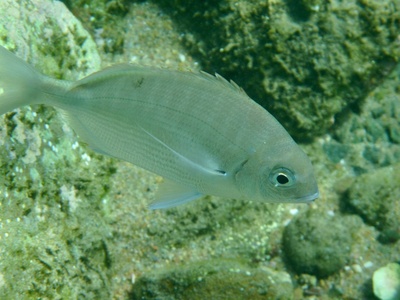
White Seabream
The ‘sargo’ is a powerful and cautious bream, making it a challenging and rewarding catch for shore anglers. Its silvery body is marked with faint vertical bands, and it is prized for its firm white flesh.
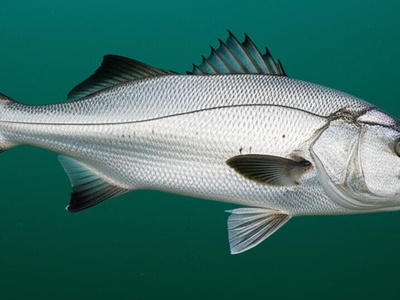
Meagre
A large, croaker-like fish that can reach immense sizes. The ‘corvina’ is known for the drumming sound produced by the males. It has become a very popular food fish, with a texture similar to sea bass.
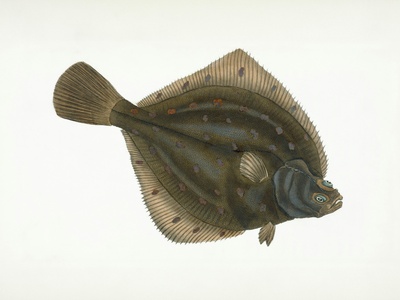
European Flounder
A hardy flatfish that can tolerate both saltwater and freshwater. The ‘platija’ is well-camouflaged against sandy and muddy bottoms. It is a popular food fish in northern Spain.
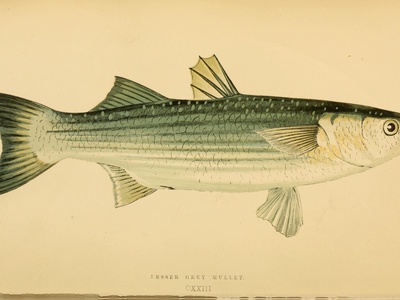
Thicklip Grey Mullet
A common, robust mullet species often seen in harbours and estuaries. The ‘lisa’ is an adaptable fish, often feeding on algae and detritus. While not a gourmet fish, it is an important part of coastal ecosystems.
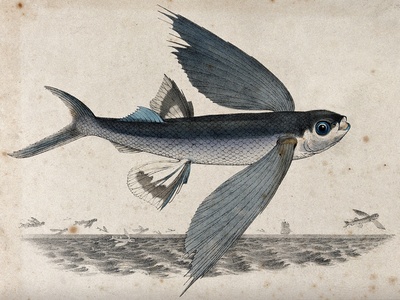
Flying Fish
A remarkable fish capable of gliding through the air for long distances to escape predators. Its “flights” are a spectacular sight in the warm offshore waters around the Canary Islands.
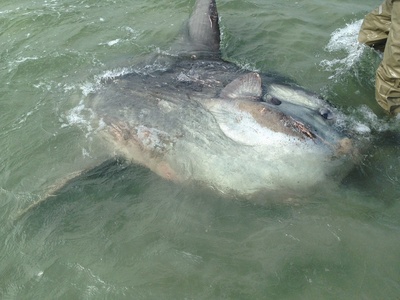
Sunfish
The heaviest bony fish in the world, the ‘pez luna’ is an extraordinary sight. It looks like a giant swimming head and is often seen basking on its side at the surface, a true ocean wanderer.
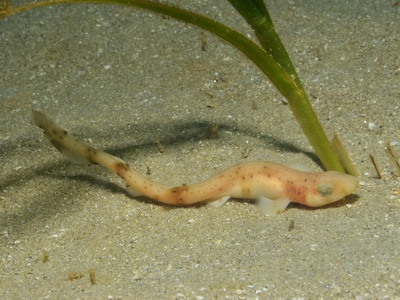
Small-spotted Catshark
A small, harmless bottom-dwelling shark, known as ‘pintarroja’. It is very common in Spanish waters and is often sold in markets, especially in Andalusia, where it is fried in ‘adobo’.
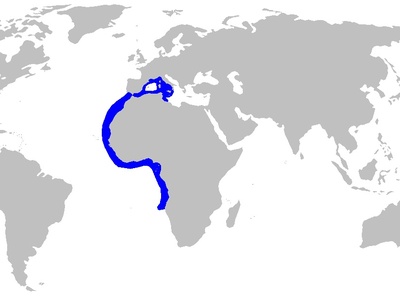
Angelshark
A critically endangered species that looks like a cross between a shark and a ray. The Canary Islands are a unique global stronghold for this “angelote,” making its conservation a top priority.
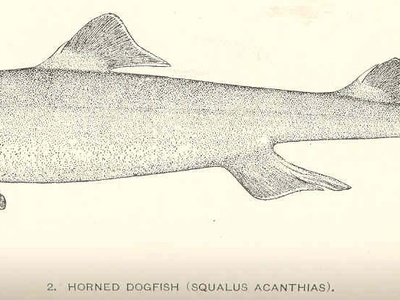
Spiny Dogfish
A small shark species named for the sharp spines in front of its dorsal fins. Known as ‘mielga’, it is often caught as bycatch and used in dishes like ‘cazón en adobo’ in southern Spain.
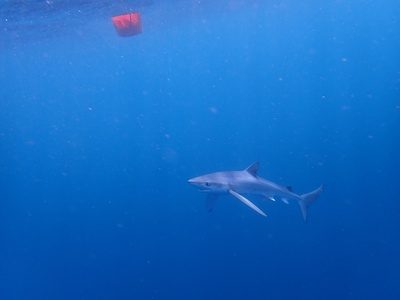
Blue Shark
A sleek, beautifully coloured oceanic shark, known as ‘tintorera’. It is a highly migratory species and a common sight in the deep waters offshore, often targeted in big game fishing.
